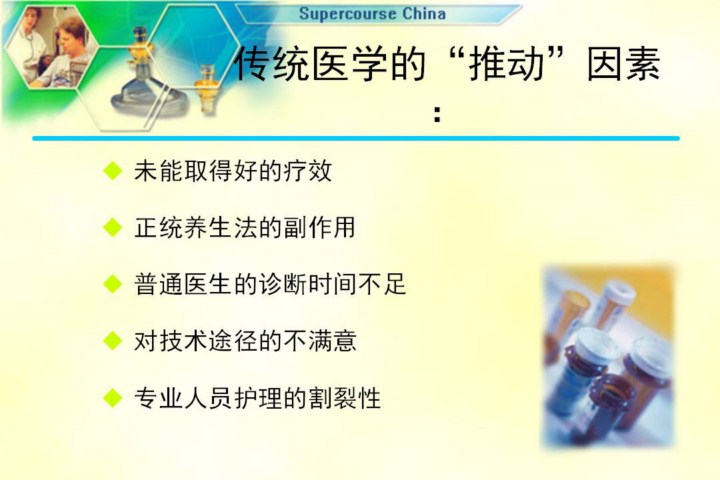| front |1 |2 |3 |4 |5 |6 |7 |8 |9 |10 |11 |12 |13 |14 |15 |16 |17 |18 |19 |20 |21 |22 |23 |24 |25 |26 |27 |28 |29 |review |
 |
You have to wonder what it is that drives people to choose these therapies when scientific medicine has wrought such extraordinary achievements in prolonging life and improving the quality of life over the past century and a half. And in part, it has to do with things that some of us find unnerving or discomforting about conventional medicine, things that push some of us away. The fact that we can’t cure all of the patients we would like to cure; that many of our therapies have adverse effects -- they’re not risk free. We practitioners are bound to shorter and shorter increments of time we’re allotted to visit with our patients. Managed care dictates that we crank patients through. Our health care process is highly technical rather than personal, and our care is fragmented among many specialists. 传统医学的推动因素: 未能取得很好的治疗效果 正统养生法的副作用 缺乏就诊时间 对技术途径的不满意 专家护理的割裂性
|